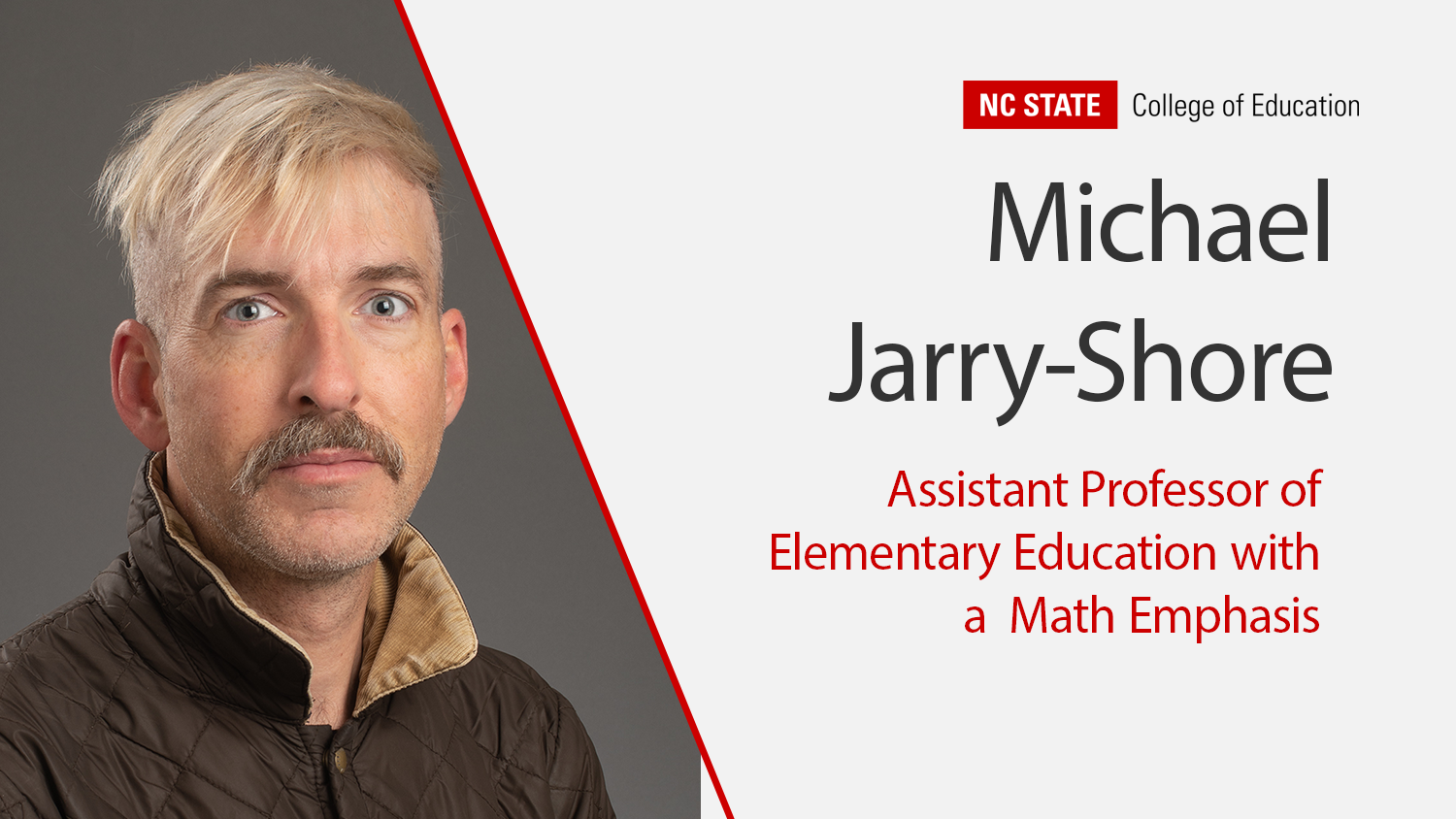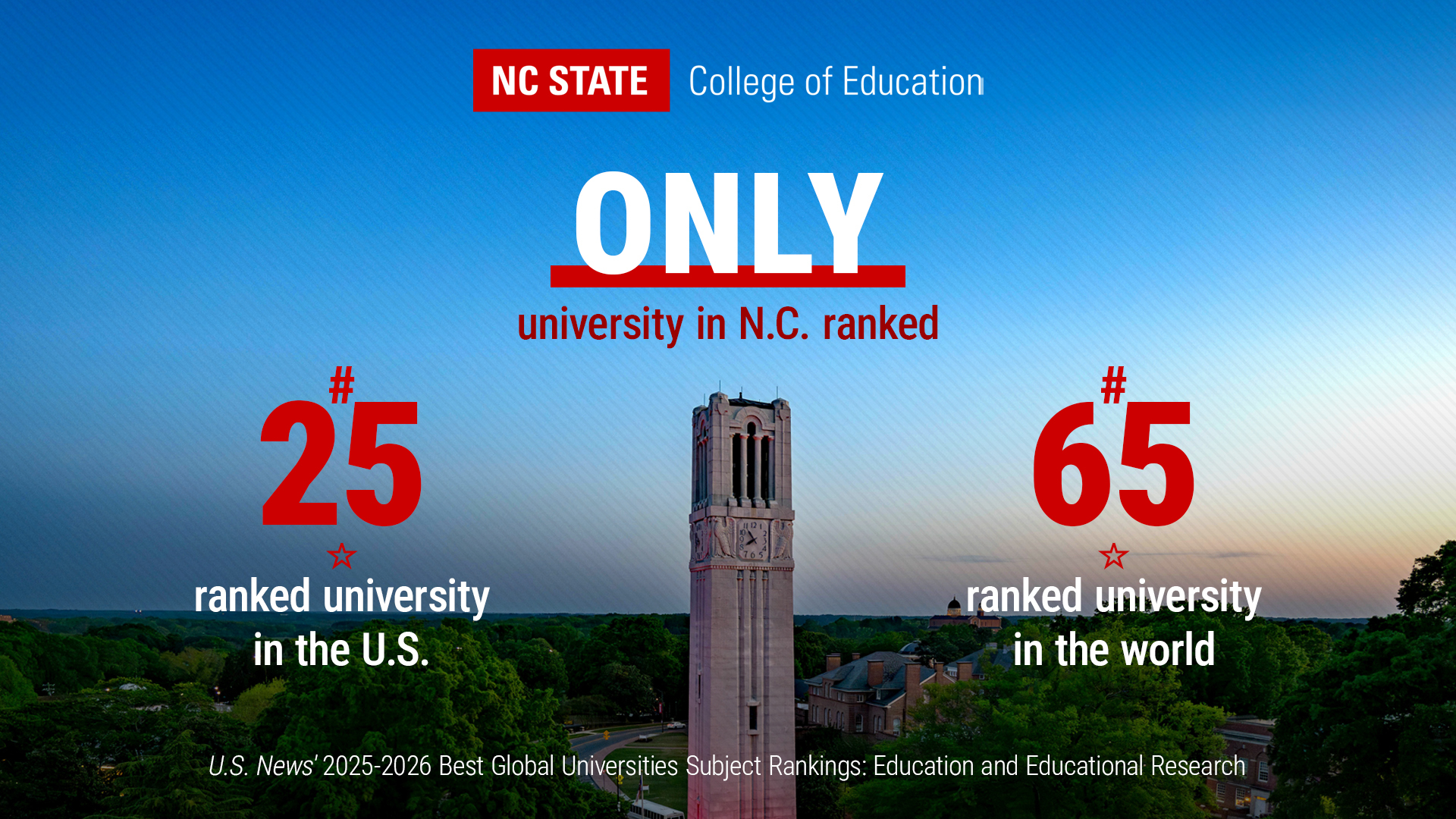Michael Jarry-Shore will join the NC State College of Education in the 2023-24 academic year as an assistant professor of elementary education with a math emphasis.
He previously taught math methods as an assistant professor of mathematics education at Boise State University and spent seven years teaching middle school mathematics and science.
Learn more about Jarry-Shore below:
Why did you choose a career in education?
I chose a career in teaching, specifically, teaching mathematics, in large part because I still had so many questions about mathematics. My hunch was that students shared many of these same questions and the opportunity to explore these questions together with them in the classroom sounded thoroughly engaging.
What inspired you to pursue a doctoral degree?
I pursued a doctoral degree in large part because, after seven years in the classroom, I was left with many unanswered questions about teaching and learning. In particular, I was left with many questions about teacher learning and the research on professional learning initiatives for both pre- and in-service teachers of mathematics.
What are your research interests?
In my research, I’m interested in the thousands of decisions teachers make when teaching, especially the reasoning that precedes and informs those decisions. In the work that I do, I interview teachers in an effort to uncover that reasoning and to learn from them. One question I continue to explore regards why teachers intervene to support students when they do and why, at other times, they refrain from doing so, and what the effects of these decisions are on student learning. I then take what I learn and use it to inform my efforts to prepare prospective teachers for the demands of the classroom.
What sparked your interest in those topics?
What sparked my interest in these topics was my own teaching experience. In the classroom, I did my best to teach in ways that placed students’ mathematical thinking at the center, yet found that work to be both complex and demanding. I thus wanted to study the work of teachers who teach in such ways, to learn from them and to leverage that learning in my work as a teacher educator.
What is one moment or project in your academic career that you are particularly proud of?
I am particularly proud of my work supporting the preparation of elementary school teachers of mathematics. I have taught courses in elementary math methods for several years now and not only thoroughly enjoy that work, but I am hopeful that it has contributed to more teachers feeling prepared for the demands of student-centered mathematics teaching and having the disposition to continue inquiring into their teaching practice.
What is your teaching philosophy?
I think people learn best when they are actively involved. In my work with pre-service teachers, I always ask them to be mindful of who in the classroom is doing the thinking, explaining, reasoning and justifying, with the goal being that it is students who are doing this work the most. I also believe that learning occurs via social interaction with one’s peers and that the true test of one’s understanding comes when asked to explain your thinking to another.
What do you hope your students learn from you?
I hope my students learn to find joy in their work with children. Too often, we can become inundated with a multitude of concerns when teaching, so much so that we forget to experience the joy that comes from being in a classroom with learners. Making space to find and experience that joy every day is, in my view, of crucial importance, both for students’ learning and for sustaining ourselves as educators.
What do you believe makes someone an extraordinary educator?
A desire to continue learning and growing. I’ve now taught in PK-12 and postsecondary settings for 18 years and can say with certainty that I’ve yet to teach the perfect lesson, as I don’t think such a thing exists. And yet, that speaks of the importance of continually striving to grow and improve as a teacher, and to learn from your students as you work to get better.
- Categories:



